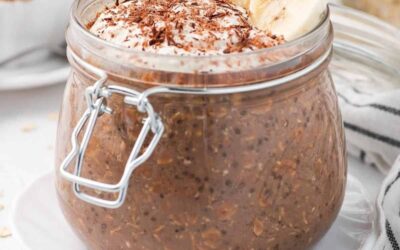If you’re constantly clearing your throat, experiencing a lingering cough, or waking with a sore voice, you might assume seasonal allergies or sinus issues are to blame. But these symptoms may actually start in the gut.
Silent reflux, or laryngopharyngeal reflux (LPR), occurs when stomach acid rises into the throat and nasal passages. Unlike traditional acid reflux, it often doesn’t include heartburn, making it harder to recognise. The result? Throat irritation, voice changes, and post-nasal drip, all without the usual digestive discomfort.
This article explores how silent reflux and post-nasal drip are connected, how your gut-brain axis influences these symptoms, and practical steps to support your body through nutrition and lifestyle changes.
What Is Silent Reflux (LPR)?
Silent reflux happens when acid escapes the stomach and reaches areas like the throat, vocal cords, and even nasal passages. This backflow can cause inflammation, irritation, and mucus production, even in the absence of heartburn.
Common symptoms include:
- Persistent post-nasal drip
- A hoarse or raspy voice
- Ongoing throat clearing
- The sensation of a lump in the throat
- Morning sore throat
- Dry cough that lingers
- Sinus congestion without clear infection
Because your digestive system is closely linked to the nervous system, irritation from silent reflux can influence mood, stress levels, and how the brain processes discomfort.
How Silent Reflux Triggers Post-Nasal Drip
Post-nasal drip results from the overproduction of mucus, which can be a response to acid irritation from the gut. Here’s how reflux sets the stage:
- Inflammation in the throat and nasal passages due to acid exposure
- Heightened sensitivity of the airways, triggering frequent throat clearing
- Reflexive mucus production, as the body tries to protect sensitive tissues
These symptoms can persist even if you’ve ruled out allergies. It’s worth exploring gut health as the underlying driver.
Foods That May Make Silent Reflux Worse
What you eat directly affects the strength of the lower oesophageal sphincter, the muscle that keeps stomach acid in place. If this muscle weakens, reflux becomes more likely. Consider limiting:
- Coffee and tea (caffeine can stimulate acid production)
- Alcohol
- Tomatoes and citrus fruits (naturally acidic)
- Spicy dishes
- Rich or greasy meals
- Some dairy, especially if you notice thick mucus after eating it
By minimising these foods, you reduce the likelihood of acid reaching your throat and triggering symptoms.
Reflux-Friendly Foods That Support Gut Health
Instead of focusing only on what to avoid, it’s equally important to add foods that support healing and reduce inflammation:
- Leafy greens – Such as spinach or rocket, which are easier to digest and support overall gut function
- Whole grains – Provide steady energy and feed healthy gut bacteria
- Lean proteins – Easier to digest and less likely to increase acid production
- Herbal teas – Chamomile, fennel, and liquorice can be soothing
These foods do more than just relieve symptoms, they also support a balanced microbiome, which is vital for gut-brain signalling and emotional wellbeing.
Lifestyle Habits That Help
Simple routines can dramatically improve how your gut handles digestion and reflux:
- Smaller, more frequent meals are easier to process and reduce pressure on the stomach.
- Stay upright after eating for at least two hours to prevent backflow.
- Elevate your head while sleeping to reduce overnight reflux episodes.
- Stay hydrated to help clear acid and mucus.
- Chew thoroughly and eat slowly, which reduces strain on the digestive system.
- Prioritise stress management – stress impacts the gut-brain axis, increasing acid production and sensitivity.
These habits help calm the gut and reduce signals of discomfort sent to the brain, creating a more balanced internal environment.
When to Get Personalised Support
If throat symptoms have become a regular part of your life and usual remedies haven’t helped, silent reflux could be the reason. Nutrition and lifestyle changes that target the digestive tract can help calm the gut and reduce upper airway symptoms.
I offer personalised nutrition coaching designed to address gut-related causes of symptoms like reflux and post-nasal drip. We’ll work together to understand what’s contributing to your discomfort and create a plan that works with your lifestyle.
Book your Discovery Call to start finding relief.




